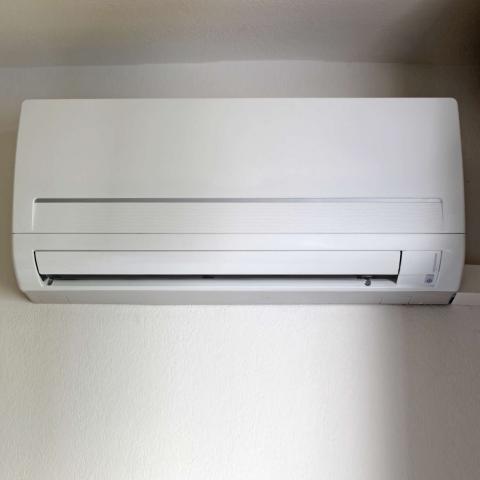
Expanding one’s vocabulary is one of the most essential elements in improving one’s language skills. Learning Japanese nouns will help you boost your knowledge of the Japanese language because nouns occupy the majority of the language’s words. Knowing the top 100 Japanese nouns is the first step to enhance your Japanese vocabulary.
Japanese nouns are used to name a person, place, thing, or idea. Contrary to English, Japanese nouns don’t accompany any articles, such as “a” and “the.” In addition, there are no certain rules for indicating, in a precise sense, whether a noun is singular or plural. For example, there’s the word 達(たち) [tachi], which indicates a plural form of people or creatures when it’s put next to a noun (e.g. 動物 + 達 = 動物達:animals).
In most cases, however, Japanese nouns don’t have anything added to indicate the difference between singular and plural. In order to show that a certain noun in Japanese is plural, add another word such as たくさんの (takusan no), or “many,” and 二つの (futatsu no), or “two” in the sentence.
In this article, we introduce the 100 most common Japanese nouns. Let’s master the basic Japanese nouns in everyday life here at JapanesePod101! Here are the top Japanese nouns by category.

Table of Contents
- Japanese Nouns: Appliances
- Japanese Nouns: Technology
- Japanese Nouns: Transportation
- Japanese Nouns: Food & Restaurants
- Japanese Nouns: School Essentials
- Japanese Nouns: Occupations
- Japanese Nouns: Family Members
- Japanese Nouns: Body Parts
- Japanese Nouns: Time
- 10. Conclusion: How JapanesePod101 Can Help You Learn More Japanese
1. Japanese Nouns: Appliances

Before studying this basic Japanese nouns list, keep in mind that some of the imported words from other languages become Japanese words, or 和製英語 (wasei eigo), with a similar sound written in Katakana. For example, “television” is テレビ (terebi) in Japanese.
| English | Kanji | Hiragana/Katakana | Reading | |
| 1 | refrigerator | 冷蔵庫 | れいぞうこ | reizōko |
| 2 | freezer | 冷凍庫 | れいとうこ | reitōko |
| 3 | microwave | 電子レンジ | でんしれんじ | denshi renji |
| 4 | air conditioner | 冷房機/クーラー | れいぼうき/クーラー | reibōki / kūrā |
| 5 | heater | 暖房機 | だんぼうき | danbōki |
| 6 | laundry machine | 洗濯機 | せんたくき | sentakuki |
| 7 | hair dryer | ー | ドライヤー | doraiyā |
| 8 | TV | ー | テレビ | terebi |
Examples
冷凍庫から氷と、冷蔵庫から飲み物を出してください。Reitōko kara kōri to, reizōko kara nomimono o dashite kudasai.
Please take out ice from the freezer and drinks from the refrigerator.
お風呂の後はドライヤーで髪を乾かします。
O-furo no ato wa doraiyā de kami o kawakashimasu.
After taking a bath, I dry my hair with a hair dryer.
私はテレビを見ることが好きです。
Watashi wa terebi o miru koto ga suki desu.
I like watching TV.
電子レンジと洗濯機が壊れたので困っています。
Denshi renji to sentakuki ga kowareta node komatte imasu.
I’m upset because the microwave and laundry machine broke.
You can also check our more useful Japanese nouns for home appliances with Japanese pronunciations at our Home Appliances vocabulary list!

Air conditioner in Japanese is also called クーラー (kūrā), which comes from the word “cooler.”
2. Japanese Nouns: Technology
Most important Japanese nouns regarding technology originated from other countries and were imported to Japan. Expressed in Katakana, these imported words have Japanese pronunciation that resembles the original English words.
| English | Kanji | Hiragana/Katakana | Reading | |
| 9 | computer | ー | コンピューター | conpyūtā |
| 10 | laptop | ー | ノートパソコン | nōto pasokon |
| 11 | tablet | ー | タブレット | taburetto |
| 12 | cellphone | 携帯電話 | けいたいでんわ | keitai denwa |
| 13 | headphone | ー | ヘッドホン | heddohon |
| 14 | charger | 充電器 | じゅうでんき | jyūdenki |
| 15 | wifi | ー | ワイファイ | waifai |
| 16 | app | ー | アプリ | apuri |
| 17 | website | ー | ウェブサイト | webusaito |
| 18 | file | ー | ファイル | fairu |
| 19 | account | ー | アカウント | akaunto |
| 20 | password | ー | パスワード | pasuwādo |
Examples
私はタブレットよりもノートパソコンの方が好きです。Watshi wa taburetto yori mo nōto pasokon no hō ga suki desu.
I like laptops more than tablets.
ワイファイのパスワードは何ですか。
Waifai no pasuwādo wa nan desu ka.
What is the wifi password?
あなたの携帯電話の充電器を使ってもいいですか。
Anata no keitai denwa jyūdenki o tsukatte mo ii desu ka.
Can I use your mobile phone charger?
Our vocabulary list about the Top 20 Words You’ll Need for the Internet is also useful to learn Japanese nouns related to technology.
3. Japanese Nouns: Transportation
Transportation is an essential part of daily life. Some of the most useful Japanese nouns are vocabulary words related to transportation. This is especially true for those who travel in Japan, who may need to ask how to get around.
| English | Kanji | Hiragana/Katakana | Reading | |
| 21 | airplane | 飛行機 | ひこうき | hikōki |
| 22 | train | 電車 | でんしゃ | densha |
| 23 | subway | 地下鉄 | ちかてつ | chikatetsu |
| 24 | bus | – | バス | basu |
| 25 | taxi | – | タクシー | takushī |
| 26 | bicycle | 自転車 | じてんしゃ | jitensha |
| 27 | station | 駅 | えき | eki |
| 28 | bus stop | バス停 | ばすてい | basutei |
| 29 | airport | 空港 | くうこう | kūkō |
| 30 | traffic light | 信号 | しんごう | shingō |
| 31 | intersection | 交差点 | こうさてん | kōsaten |
| 32 | road | 道/道路 | みち/どうろ | michi/dōro |
Example
一番近いバス停はどこですか。Ichi-ban chikai basutei wa doko desu ka.
Where is the nearest bus stop?
私の町には地下鉄はありません。
Watashi no machi ni wa chikatetsu wa arimasen.
There is no subway in my town.
信号のある交差点を左に曲がります。
Shingō no aru kōsaten o hidari ni magarimasu.
Turn left at the intersection which has a traffic light.

Public transportation is well-developed in Japan, especially in the large cities. Shinkansen is very famous for its super-fast speed and is popular among foreign tourists.
4. Japanese Nouns: Food & Restaurants
Whenever you go out to eat at restaurants, you look at a menu and order what you want to eat and drink. Knowing Japanese nouns and vocabulary related to restaurants makes your dining-out experience much smoother. Japan has a variety of foods and a wide range of ingredients are used in the Japanese food culture. If can’t eat certain things due to your religion, an allergy, or a discipline such as vegetarianism, you have to ask a staff member if your preferred meal is available. Here’s a common Japanese nouns list to help you do so!
| English | Kanji | Hiragana/Katakana | Reading | |
| 33 | menu | ー | メニュー | menyū |
| 34 | waiter/waitress | 店員 | てんいん | ten’in |
| 35 | bill | 会計 | かいけい | kaikei |
| 36 | fork | ー | フォーク | fōku |
| 37 | knife | ー | ナイフ | naifu |
| 38 | spoon | ー | スプーン | supūn |
| 39 | chopsticks | 箸箸 | はし | hashi |
| 40 | water | 水 | みず | mizu |
| 41 | vegetables | 野菜 | やさい | yasai |
| 42 | beef | 牛肉 | ぎゅうにく | gyūniku |
| 43 | pork | 豚肉 | ぶたにく | butaniku |
| 44 | chicken | 鶏肉 | とりにく | toriniku |
Examples
ベジタリアンのメニューはありますか。Bejitarian no menyū wa arimasu ka.
Do you have a vegetarian menu?
お箸の使い方を教えてください。
O-hashi no tsukaikata o oshiete kudasai.
Please teach me how to use chopsticks.
私は豚肉を食べられません。
Watashi wa butaniku o taberaremasen.
I can’t eat pork.
For more about Japanese nouns related to food and restaurants, see our Food – Utensils & Tableware and Restaurant vocabulary lists.

Japan has great food culture where you can find tasty food from low-end and high-end restaurants.
5. Japanese Nouns: School Essentials
The Japanese school system consists of elementary school, middle school, high school, and higher education such as universities and vocational schools. Compulsory education is six years of elementary school and three years of middle school, and both are free. Here are the most common nouns in Japanese related to school.
| English | Kanji | Hiragana/Katakana | Reading | |
| 45 | elementary school | 小学校 | しょうがっこう | shōgakkō |
| 46 | middle school | 中学校 | ちゅうがっこう | shōgakkō |
| 47 | high school | 高校 | こうこう | kōkō |
| 48 | college/university | 大学 | だいがく | daigaku |
| 49 | student | 生徒/学生 | せいと/がくせい | seito/gakusei |
| 50 | teacher | 先生/教師 | せんせい/きょうし | sensei/kyōshi |
| 51 | major | 専攻 | せんこう | senkō |
| 52 | degree | 学位 | がくい | gakui |
| 53 | exam | 試験 | しけん | shiken |
| 54 | homework | 宿題 | しゅくだい | shukudai |
Examples
あなたの専攻は何ですか。Anata no senkō wa nan desu ka.
What is your major?
彼女は小学校の先生です。
Kanojo wa shōgakkō no sensei desu.
She is a teacher at an elementary school.
私は宿題を終えた後に遊びに行きます。
Watashi wa shukudai o oeta ato ni asobi ni ikimasu.
I will go and play after finishing my homework.
6. Japanese Nouns: Occupations

To engage in certain occupations, one must pass the related national examinations. The most difficult occupations to attain in Japan are said to be a doctor, lawyer, and accountant, in terms of how difficult the national examinations are.
| English | Kanji | Hiragana/Katakana | Reading | |
| 55 | doctor | 医師 | いし | ishi |
| 56 | nurse | 看護師 | かんごし | kangoshi |
| 57 | lawyer | 弁護士 | べんごし | bengoshi |
| 58 | chef | 料理人 | りょうりにん | ryōrinin |
| 59 | businessperson | 実業家 | じつぎょうか | jitsugyōka |
| 60 | police officer | 警察官 | けいさつかん | keisatsukan |
| 61 | firefighter | 消防士 | しょうぼうし | shōbōshi |
| 62 | engineer | 技術者 | ぎじゅつしゃ | gijutsusha |
| 63 | civil servant | 公務員 | こうむいん | kōmuin |
| 64 | accountant | 会計士 | かいけいし | kaikeishi |
Examples
消防士になるのは難しいですか。Shōbōshi ni naru no wa muzukashii desu ka.
Is it difficult to become a firefighter?
私は警察官になりたいです。
Watashi wa keisatsukan ni naritai desu.
I want to become a police officer.
公務員の職業は安定しているので人気です。
Kōmuin no shokugyō wa antei shite iru node ninki desu.
The occupation of civil servant is popular because it is stable.
To hear how to pronounce the words on this Japanese list of nouns, see our Jobs / Work vocabulary list.
 Some people take many years to pass the national examination to be a lawyer or accountant in Japan.
Some people take many years to pass the national examination to be a lawyer or accountant in Japan.
7. Japanese Nouns: Family Members
It’s useful to know Japanese nouns and vocabulary related to family members when you introduce yourself and describe your family to someone.
| English | Kanji | Hiragana/Katakana | Reading | |
| 65 | family | 家族 | かぞく | kazoku |
| 66 | mother | 母/お母さん | はは/おかあさん | haha/o-kā-san |
| 67 | father | 父/お父さん | ちち/おとうさん | chichi/o-tō-san |
| 68 | parent | 親 | おや | oya |
| 69 | daughter | 娘 | むすめ | musume |
| 70 | son | 息子 | むすこ | musuko |
| 71 | grandma | 祖母 | そぼ | sobo |
| 72 | grandpa | 祖父 | そふ | sofu |
Examples
私の母は看護師です。Watashi no haha wa kangoshi desu.
My mother is a nurse.
私の家族は5人家族です。
Watashi no kazoku wa go-nin kazoku desu.
My family has five family members.
彼女の息子は6歳です。
Kanojo no musuko wa roku-sai desu.
Her son is six years old.
Compared to English, Japanese has more words to describe family members according to age and style, and also uses both formal and informal forms. For more details on this, please visit our Japanese Family article and our Must-Know Terms for Family Members vocabulary list.
8. Japanese Nouns: Body Parts

Knowing the Japanese nouns for the parts of the body is very useful, especially when it comes to health (e.g. seeing a doctor at a hospital or working out at the gym).
| English | Kanji | Hiragana/Katakana | Reading | |
| 73 | body | 体 | からだ | karada |
| 74 | head | 頭 | あたま | atama |
| 75 | shoulder | 肩 | かた | kata |
| 76 | arm | 腕 | うで | ude |
| 77 | leg | 足 | あし | ashi |
| 78 | chest | 胸 | むね | mune |
| 79 | abdomen | 腹 | はら | hara |
| 80 | face | 顔 | かお | kao |
| 81 | eye | 目 | め | me |
| 82 | nose | 鼻 | はな | hana |
| 83 | mouth | 口 | くち | kuchi |
| 84 | ear | 耳 | みみ | mimi |
Examples
風邪を引いたので頭が痛いです。Kaze o hiita node atama ga itai desu.
I have a headache because I caught a cold.
体を動かす運動は健康に良いです。
Karada o ugokasu undō wa kenkō ni ii desu.
Exercise that moves your body is good for health.
彼女は可愛い大きな目を持っています。
Kanojo wa kawaii ōkina me o motte imasu.
She has cute big eyes.
For more Japanese nouns of body parts, and to check their Japanese pronunciation, visit our Body Parts vocabulary list.

Many Japanese people are keen on diet and health.
9. Japanese Nouns: Time
Expressing the time is essential for everyday life. Learning the Japanese nouns for time is always useful for things such as scheduling plans, making an appointment, or just checking the time and date. Here’s our Japanese nouns list for words related to time.
| English | Kanji | Hiragana/Katakana | Reading | |
| 85 | today | 今日 | きょう | kyō |
| 86 | yesterday | 昨日 | きのう | kinō |
| 87 | tomorrow | 明日 | あした | kinō |
| 88 | Monday | 月曜日 | げつようび | getsu-yōbi |
| 89 | Tuesday | 火曜日 | かようび | ka-yōbi |
| 90 | Wednesday | 水曜日 | すいようび | sui-yōbi |
| 91 | Thursday | 木曜日 | もくようび | moku-yōbi |
| 92 | Friday | 金曜日 | きんようび | kin-yōbi |
| 93 | Saturday | 土曜日 | どようび | do-yōbi |
| 94 | Saturday | 日曜日 | にちようび | nichi-yōbi |
| 95 | day | 日 | にち/ひ | nichi/hi |
| 96 | week | 週 | しゅう | shū |
| 97 | month | 月 | つき/げつ | tsuki/getsu |
| 98 | year (as unit) | 年 | とし/ねん | toshi/nen |
| 99 | hour | 時間 | じかん | jikan |
| 100 | minute | 分 | ふん | fun |
Examples
明日は金曜日です。Ashita wa kin-yōbi desu.
Tomorrow is Friday.
結果を出すまで2年と5ヶ月かかりました。
Kekka o dasu made ni-nen to go-kagetsu kakarimashita.
It took two years and five months to achieve the result.
私は今日3時間歩きました。
Watashi wa kyō san-jikan arukimashita.
I walked three hours today.
There are various expressions regarding dates in Japanese. Visit our article on Japanese Dates to learn more Japanese nouns of time and date, and how to use that information in real life!
10. Conclusion: How JapanesePod101 Can Help You Learn More Japanese

We’ve now introduced the 100 most useful Japanese nouns. I hope this article helps you improve your Japanese vocabulary and skills!
Did you learn any new words today? Are there any Japanese nouns you still want to know? Let us know in the comments; we look forward to hearing from you!
If you would like to learn more about the Japanese language and other Japanese nouns, you’ll find a lot more useful content on JapanesePod101.com. We provide a variety of free lessons for you to improve your Japanese language skills.
To learn about Japanese nouns and more vocabulary, check out Top 25 Japanese Nouns and Japanese Core 100 Word List. Our vocabulary lists about School, School Subjects, and Body – Describing the Body are also useful; you can learn more about the topics and practice your Japanese pronunciation with audio.
There’s so much more, too! Learn faster and enjoy studying Japanese at JapanesePod101.com!










